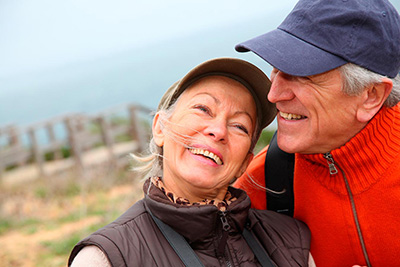
The world is open again for exotic travel. Most countries have lifted travel bans and ditched masks, and many have eased up on COVID vaccine requirements. Although people are eager to get back out there and explore, COVID isn’t the only illness that can plague travelers. However, by visiting a physician certified in travel health prior to taking off, vacationers can avoid many of the health hazards associated with travel abroad.
“For places like Western Europe, Australia, and Japan there aren’t many additional health risks with travel than one might expect with domestic travel,” explains Dr. Joyce Sanchez, an infectious disease physician with East Falls Infectious Disease. “However, for someone traveling to less well-developed areas, such as sub-Saharan Africa, Southeast Asia, and South and Central America, seeing provider four to six weeks before leaving the country is advised. By then, an itinerary has been planned and there is sufficient time for vaccines to take effect.”
Dr. Sanchez covers four topics with her patients during travel health appointments. As expected, vaccines are at the top of the list.
“We discuss travel-specific vaccines in addition to routine vaccines. People don’t always think about the importance of keeping up to date on common vaccines we get here in the United States. But even places like Western Europe still have outbreaks of diseases like measles, which is vaccine preventable.”
Medication is the second topic Dr. Sanchez discusses with patients. Naturally, that includes medications the patient is routinely taking, to ensure they do not run out while abroad. Just as important, however, are medications that can be taken to prevent diseases that are common in developing countries.
“Malaria, for instance, is very common in certain countries. While we don’t have a vaccine commercially available to prevent malaria yet, we have oral medications that can be taken preemptively. Someone who takes them and is bitten by an infected mosquito won’t get sick with malaria. Along with medications, we also talk about tick and mosquito bite prevention measures.”
Foodborne and waterborne illnesses are the third item on Dr. Sanchez’s list.
“Many countries do not have the sanitation standards that we are fortunate to have. It’s really important to find out what is safe to eat and drink and what is not. Hepatitis A, which is highly contagious virus and very common in developing countries, is a food- and waterborne illness. However, there is a vaccine to prevent hepatitis A. If someone is up-to-date on the vaccine series, they are highly protected.”
Topic number four, general safety and health precautions, covers a lot of important issues.
“We talk about motor vehicle and boat safety (including motion sickness); how to mitigate jet lag and avoid the risk of blood clots during long flights; what to do if there is a medical emergency, any questions on travel or medical evacuation insurance; what to do if bit by an animal. Some of these topics are more relevant to some more than others, such as those planning on safari or high-altitude treks, for instance. But all travelers benefit when they plan for the unexpected.”
Of course, both domestic and international travelers should practice good personal hygiene habits.
“Any time we travel, it seems like someone comes down with a cold. A simple was to avoid this is proper hand hygiene. For those times when you can’t wash your hands, carry a small bottle of hand sanitizer. It’s easy and effective.”
What about that very touchy subject of wearing masks? It’s still something to consider when traveling in close quarters with lots of strangers, such as on a plane, bus, or subway.
“And if you have symptoms while traveling, wearing a mask is a good idea,” suggests Dr. Sanchez. “Even though few places still require masks, keep one handy in case someone near you is coughing and sneezing. It’s never fun to get sick on vacation.”
Since the travel industry was upended by COVID, and all types of travel businesses are still struggling to meet demand, Dr. Sanchez recommends strategies for all travelers to avoid emotional distress: “Be prepared to change your plans at the last minute. Avoid booking an activity that is nonrefundable or unable to be rescheduled. Above all, be patient. Have grace with the people working in the travel industry. They have had considerable strain on their industry, and kindness is important.”
$webqFacilityNumber
Need a Physician?